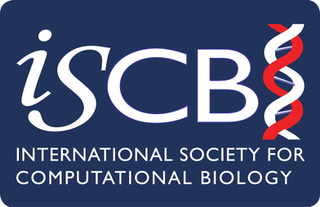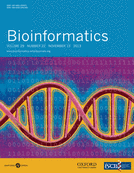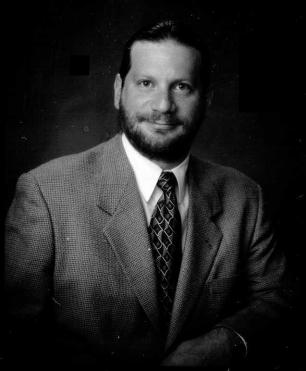
Bioinformatics is an interdisciplinary field of science that develops methods and software tools for understanding biological data, especially when the data sets are large and complex. Bioinformatics uses biology, chemistry, physics, computer science, computer programming, information engineering, mathematics and statistics to analyze and interpret biological data. The subsequent process of analyzing and interpreting data is referred to as computational biology.

The Biopython project is an open-source collection of non-commercial Python tools for computational biology and bioinformatics, created by an international association of developers. It contains classes to represent biological sequences and sequence annotations, and it is able to read and write to a variety of file formats. It also allows for a programmatic means of accessing online databases of biological information, such as those at NCBI. Separate modules extend Biopython's capabilities to sequence alignment, protein structure, population genetics, phylogenetics, sequence motifs, and machine learning. Biopython is one of a number of Bio* projects designed to reduce code duplication in computational biology.
The Open Bioinformatics Foundation is a non-profit, volunteer-run organization focused on supporting open source programming in bioinformatics. The mission of the foundation is to support the development of open source toolkits for bioinformatics, organise developer-centric hackathon events and generally assist in the development and promotion of open source software development in the life sciences. The foundation also organises and runs the annual Bioinformatics Open Source Conference, a satellite meeting of the Intelligent Systems for Molecular Biology conference. The foundation participates in the Google Summer of Code, acting as an umbrella organisation for individual bioinformatics-related projects.

Carole Anne Goble, is a British academic who is Professor of Computer Science at the University of Manchester. She is principal investigator (PI) of the myGrid, BioCatalogue and myExperiment projects and co-leads the Information Management Group (IMG) with Norman Paton.

Intelligent Systems for Molecular Biology (ISMB) is an annual academic conference on the subjects of bioinformatics and computational biology organised by the International Society for Computational Biology (ISCB). The principal focus of the conference is on the development and application of advanced computational methods for biological problems. The conference has been held every year since 1993 and has grown to become one of the largest and most prestigious meetings in these fields, hosting over 2,000 delegates in 2004. From the first meeting, ISMB has been held in locations worldwide; since 2007, meetings have been located in Europe and North America in alternating years. Since 2004, European meetings have been held jointly with the European Conference on Computational Biology (ECCB).

Galaxy is a scientific workflow, data integration, and data and analysis persistence and publishing platform that aims to make computational biology accessible to research scientists that do not have computer programming or systems administration experience. Although it was initially developed for genomics research, it is largely domain agnostic and is now used as a general bioinformatics workflow management system.

The International Society for Computational Biology (ISCB) is a scholarly society for researchers in computational biology and bioinformatics. The society was founded in 1997 to provide a stable financial home for the Intelligent Systems for Molecular Biology (ISMB) conference and has grown to become a larger society working towards advancing understanding of living systems through computation and for communicating scientific advances worldwide.

Bioinformatics is a biweekly peer-reviewed scientific journal covering research and software in bioinformatics and computational biology. It is the official journal of the International Society for Computational Biology (ISCB), together with PLOS Computational Biology. Authors can pay extra for open access and are allowed to self-archive after 1 year.

Lawrence E. Hunter is a Professor and Director of the Center for Computational Pharmacology and of the Computational Bioscience Program at the University of Colorado School of Medicine and Professor of Computer Science at the University of Colorado Boulder. He is an internationally known scholar, focused on computational biology, knowledge-driven extraction of information from the primary biomedical literature, the semantic integration of knowledge resources in molecular biology, and the use of knowledge in the analysis of high-throughput data, as well as for his foundational work in computational biology, which led to the genesis of the major professional organization in the field and two international conferences.
The Netherlands Bioinformatics Centre or NBIC (2003-2013) was a Dutch, government-funded organization, that coordinated all academic work on bioinformatics in the Netherlands. NBIC consisted of programs for research (BioRange), for education (BioWise), and for support (BioAssist). NBIC partners are all Dutch universities and university hospitals, and some commercial entities. The NBIC central office was hosted by the Center for Molecular and Biomolecular Informatics (CMBI) at the Radboud University Nijmegen Medical Centre.

The International Society for Computational Biology Student Council (ISCB-SC) is a dedicated section of the International Society for Computational Biology created in 2004. It is composed by students from all levels in the fields of bioinformatics and computational biology. The organisation promotes the development of the students' community worldwide by organizing different events including symposia, workshops, webinars, internship coordination and hackathons. A special focus is made on the development of soft skills in order to develop potential in bioinformatics and computational biology students around the world.

The European Conference on Computational Biology (ECCB) is a scientific meeting on the subjects of bioinformatics and computational biology. It covers a wide spectrum of disciplines, including bioinformatics, computational biology, genomics, computational structural biology, and systems biology. ECCB is organized annually in different European cities. Since 2007, the conference has been held jointly with Intelligent Systems for Molecular Biology (ISMB) every second year. The conference also hosts the European ISCB Student Council Symposium. The proceedings of the conference are published by the journal Bioinformatics.
Research in Computational Molecular Biology (RECOMB) is an annual academic conference on the subjects of bioinformatics and computational biology. The conference has been held every year since 1997 and is a major international conference in computational biology, alongside the ISMB and ECCB conferences. The conference is affiliated with the International Society for Computational Biology. Since the first conference, authors of accepted proceedings papers have been invited to submit a revised version to a special issue of the Journal of Computational Biology.

.NET Bio is an open source bioinformatics and genomics library created to enable simple loading, saving and analysis of biological data. It was designed for .NET Standard 2.0 and was part of the Microsoft Biology Initiative in the eScience division.
CloudBioLinux is an open-source project providing machine images for bioinformatics on cloud computing platforms. CloudBioLinux provides a build and deployment system which can deploy directly to desktop machines, to desktop Virtual Machines (VMs), or to cloud providers such as the Amazon Elastic Compute Cloud (EC2). The project also provides a pre-built Amazon Machine Image (AMI) for use on Amazon EC2, and downloadable pre-built virtual machine images for the desktop virtual machine software VirtualBox and for use on a private Eucalyptus cloud.

Ron Shamir is an Israeli professor of computer science known for his work in graph theory and in computational biology. He holds the Raymond and Beverly Sackler Chair in Bioinformatics, and is the founder and former head of the Edmond J. Safra Center for Bioinformatics at Tel Aviv University.

The Common Workflow Language (CWL) is a standard for describing computational data-analysis workflows. Development of CWL is focused particularly on serving the data-intensive sciences, such as bioinformatics, medical imaging, astronomy, physics, and chemistry.
The 'German Network for Bioinformatics Infrastructure – de.NBI' is a national, academic and non-profit infrastructure initiated by the Federal Ministry of Education and Research funding 2015-2021. The network provides bioinformatics services to users in life sciences research and biomedicine in Germany and Europe. The partners organize training events, courses and summer schools on tools, standards and compute services provided by de.NBI to assist researchers to more effectively exploit their data. From 2022, the network will be integrated into Forschungszentrum Jülich.
Laxmi Parida is an IBM Master Inventor and group leader in computational genomics at the Thomas J. Watson Research Center and Courant Institute of Mathematical Sciences in New York.













